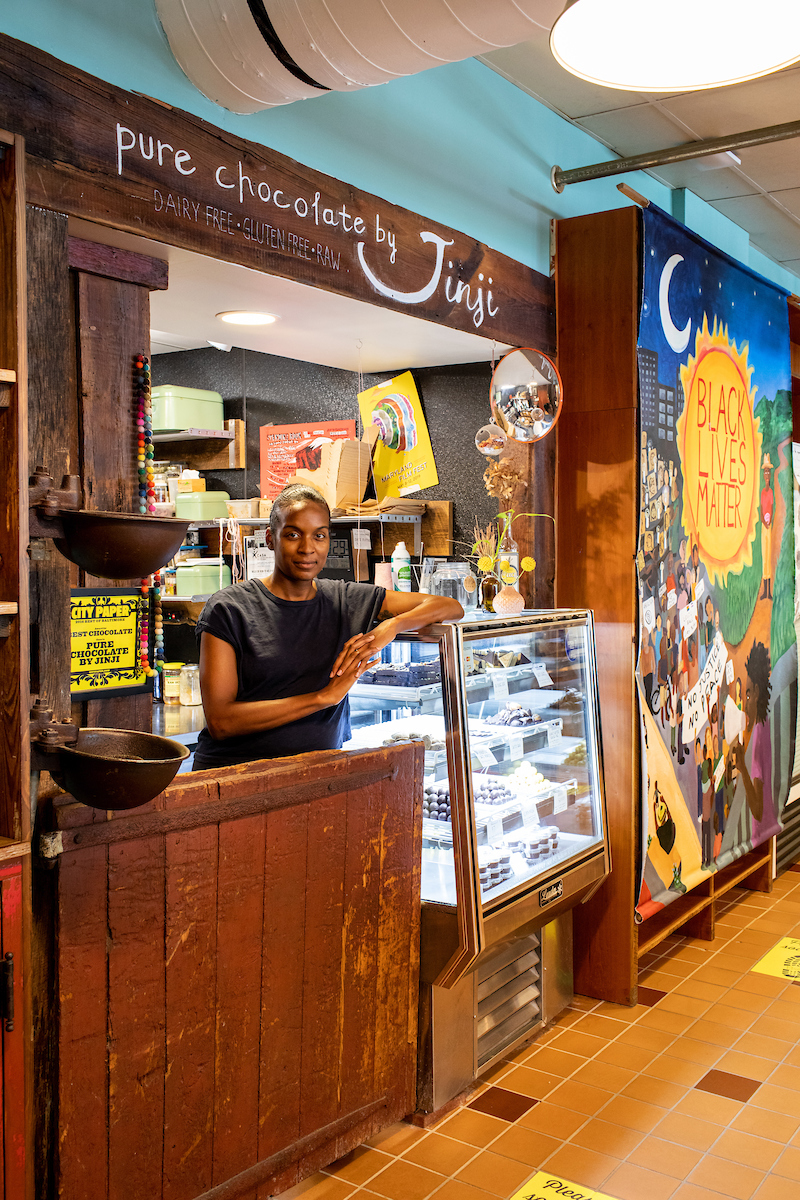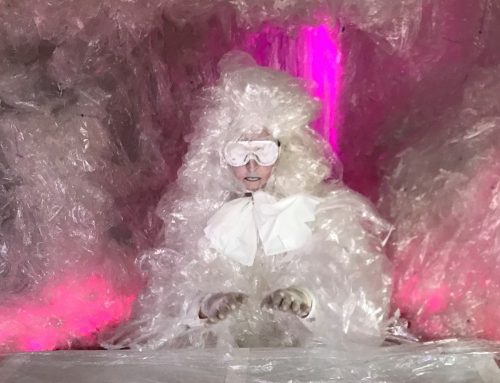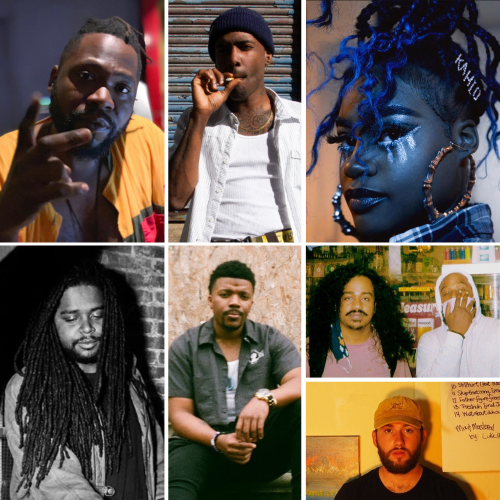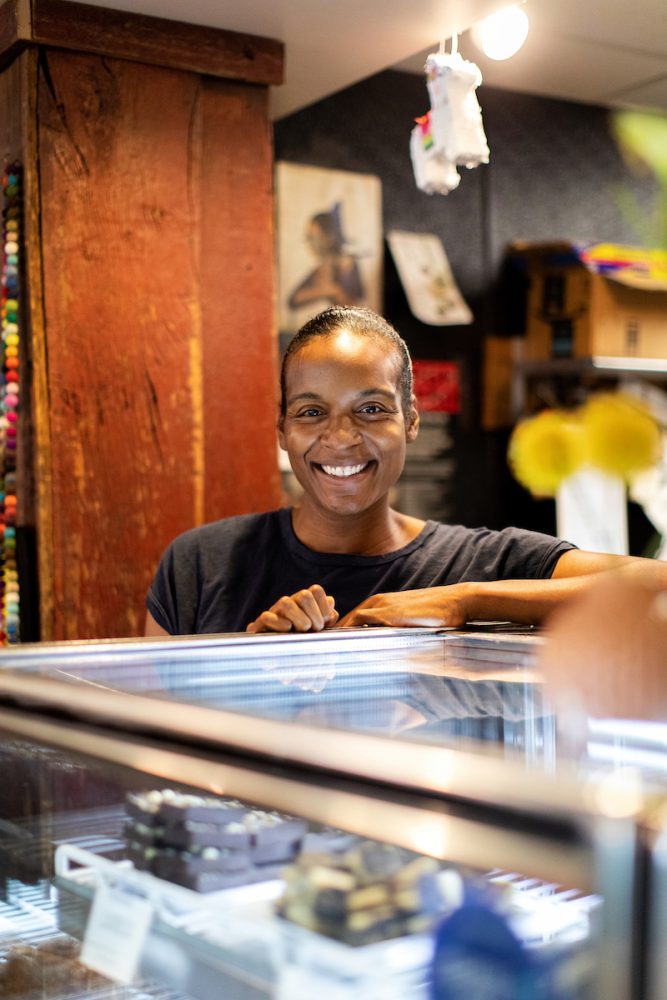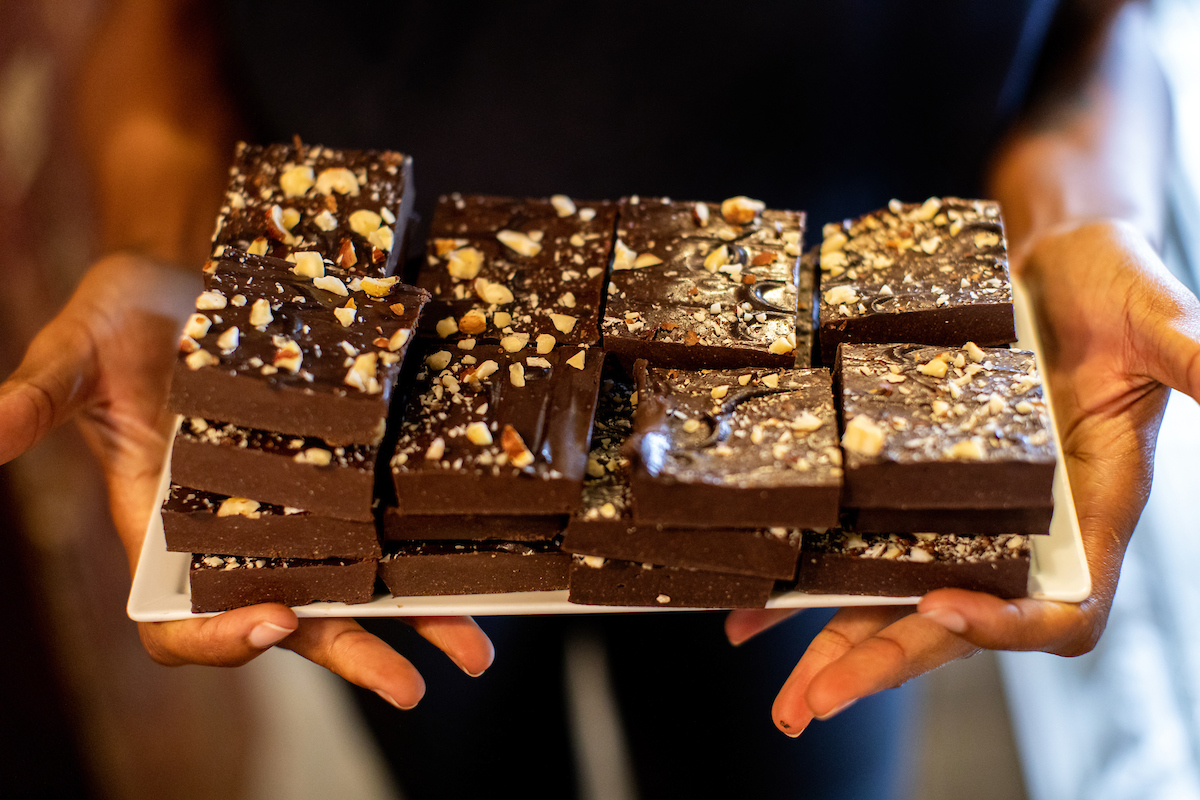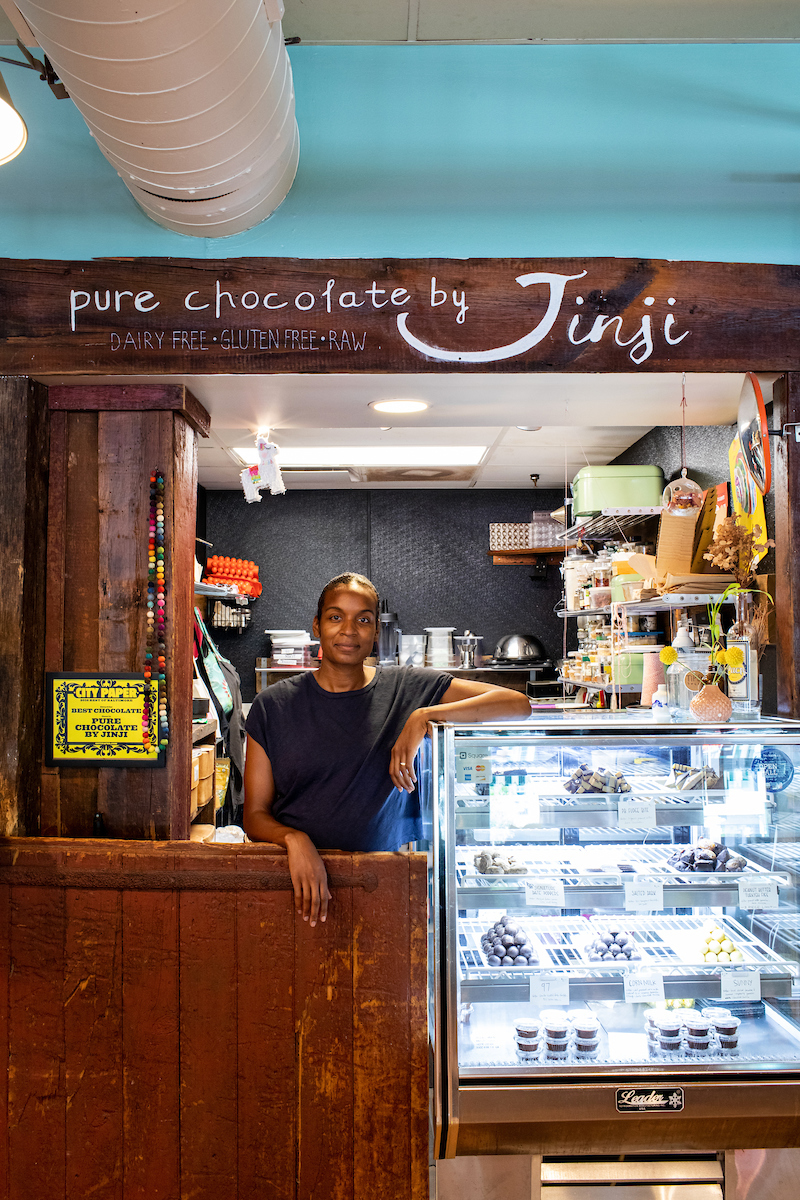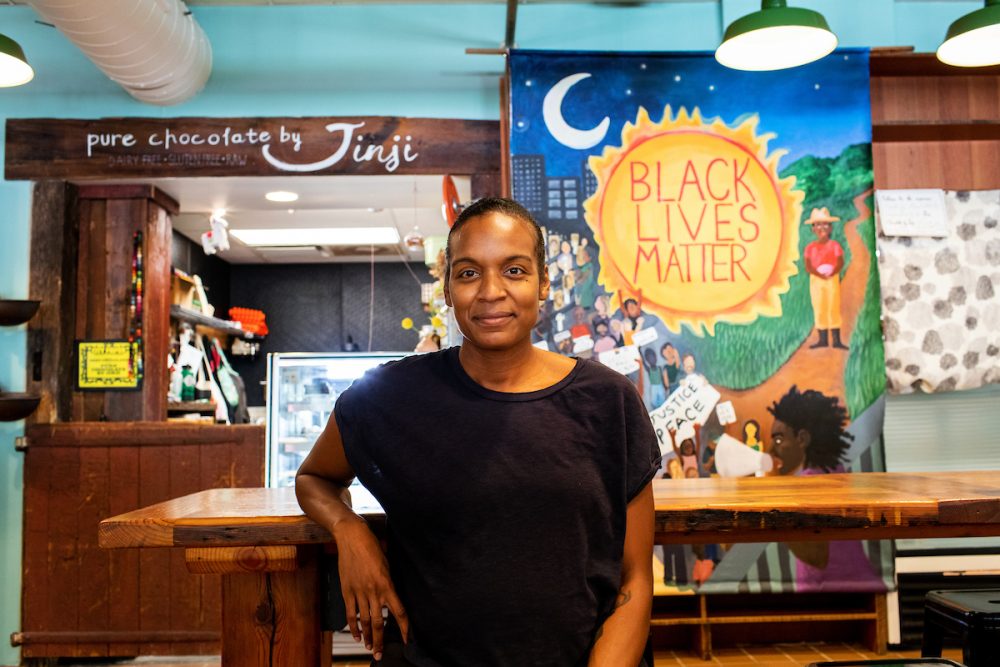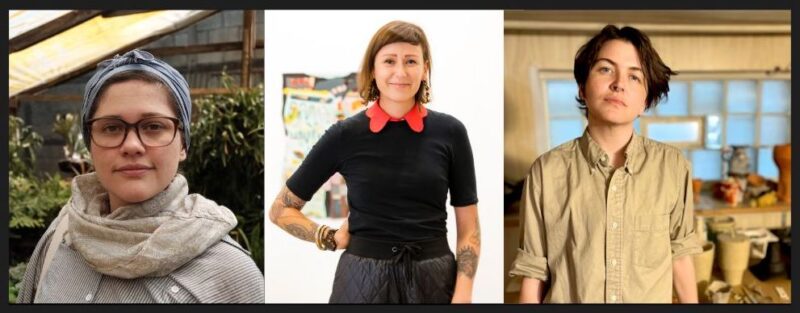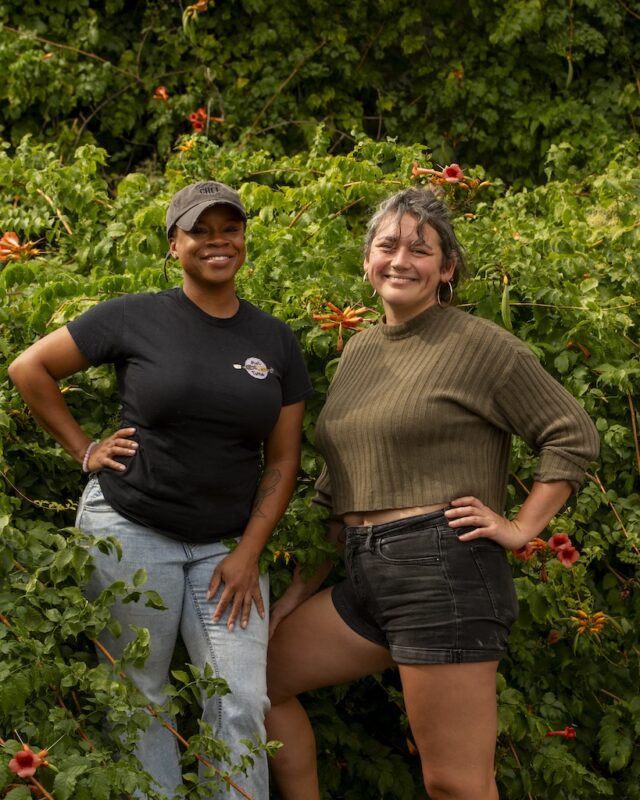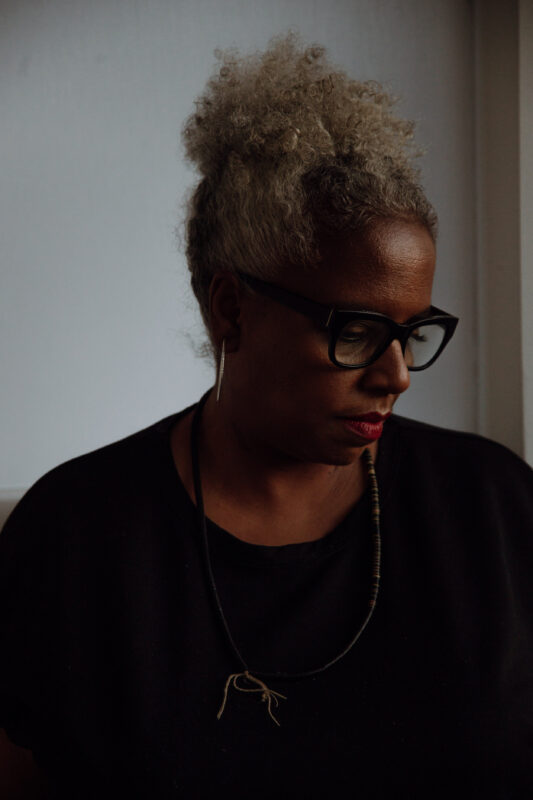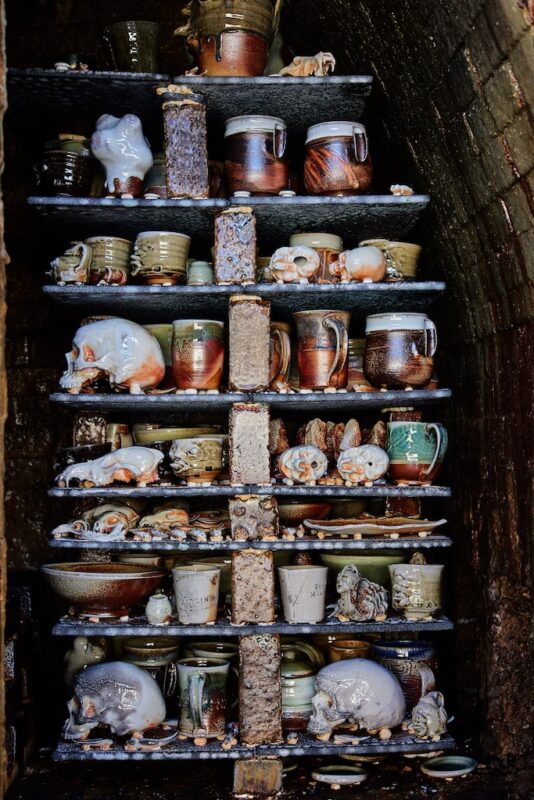Jinji Fraser doesn’t love eating chocolate. Don’t get her wrong: She likes it, but it’s not her desert island food. Her interest in chocolate lies more in its history, which is ancient, and the neverending iterations of savory and sweet she can create with it. She’s had a reverence for the confection since a fateful day in 2012 when, while working an event as a nutrition consultant, she stepped on a postcard advertising chocolate-making classes. Only a month or so later she was starting the business that became Pure Chocolate by Jinji with her father, Guy Fraser.
In the early days, Fraser and her father promoted their product by “framing it in nutrition,” she says. “Everything that we made we wanted to be dairy-free and gluten-free with no refined sugars and just a healthful way for people to bridge that gap between the refined foods and holistic ones.” They were guided by a sense of purpose and a desire to do something creative together. But when they started the business, Guy, who formerly worked for the government, and Jinji, who had a desk job at Under Armour before becoming a nutrition consultant, had “no idea what we were doing,” she says with a laugh.
Despite starting before they knew exactly what they were getting into, the family has been rewarded—Pure Chocolate by Jinji still operates entirely out of their small storefront in Belvedere Square and is available throughout the DMV area in roughly two dozen high-end restaurants and specialty shops. They are a success on every level and, prior to COVID, were about a week away from opening the doors of a second location complete with a café space and chocolate-making classes. (Those plans have been put on hold indefinitely.) But Fraser’s thinking about her business’s motivations and raison d’être changed recently when she became aware of her own ancestral connection to the cacao growing region of Guyana, a South American country bordered by Venezuela, Brazil, and the Atlantic Ocean.
“All of a sudden, I feel this link to what I’m doing, not just through a postcard, but through ancestral DNA, which is completely different. It introduces a whole new world of discovery and exploration… just drawing parallels between that particular story and my purpose and what I’m doing now,” she says. “I feel fortunate because the way that we’ve run our business has been very much grounded in storytelling and nontraditional approaches to chocolate. It’s been very heartfelt and it’s been very intentional and I’ve always felt creative about what I was doing.”
Now Fraser feels it’s important to “explore the political edges” of her work, she says, “because I understand that chocolate is a very white male-dominated space. And trying to understand where I fit into that, up until this recent revelation, felt very intimidating. I was going into a craft [where] nobody looked like me. I had no example of how this could possibly work for someone that looked like me.” For Fraser, who was pregnant during our interview and will deliver a baby in October, becoming a mother has made securing a place for herself in the chocolate industry of the future feel essential, and knowing her genealogy has created a tangible link to her ancestors that she feels when holding chocolate, a connection that “any person of color, Black person, Indigenous, Mexican, we all share. That’s what we have that dominant space does not.”
Her newfound political sense of purpose to reclaim what has historically been a white-dominant field has become more important to Fraser than the making of the chocolate. The colonial origins and capitalist persistence of the chocolate industry are heavy on her mind. “Reconciling all of these things,” she says, “the creativity, the making, the ancestry, the politics are a huge bundle that we’re constantly negotiating and trying to just make ourselves proud of what we’re doing.” In doing this work, Fraser, who has been interested in food anthropology since college, wants to be a “truth-teller” and has turned to writing lately. She expects to publish a couple of magazine pieces in the coming year that put the story of chocolate as seen by her ancestors in her own words.
Over Zoom, Fraser and I talked about family secrets, the challenges of being a female business owner, and how knowing chocolate’s history just might make you savor this limited resource a little bit more.
SUBJECT: Jinji Fraser, 37
WEARING: Black tee and black leggings, all Free People: “Their oversized style is perfect for my 8 months pregnant belly!”
PLACE: Zoom
